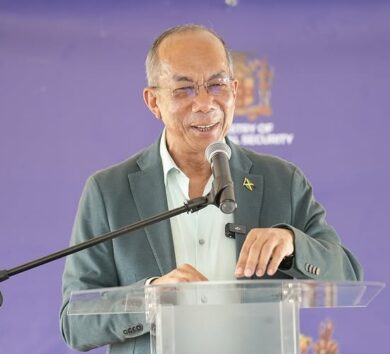

Opposition Spokesman on Education Damion Crawford promised on Thursday (August 7) that if the People’s National Party (PNP) is voted into power in the upcoming general election, it will expand testing for children with disabilities in seven regions
Eventually, he said it will be expanded to the nation’s fourteen parishes.
Crawford was speaking at the event dubbed ‘Let’s Talk’, where Opposition Leader Mark Golding invited persons living with disabilities and stakeholders to a conversation at the Summit hotel in New Kingston.
He also gave a brief explanation of how the PNP intends to achieve that goal if they get the majority of votes in a matter of weeks.
“Firstly, is to incorporate some of our partners, international partners, because some of the skillsets for testing are not here in the abundance necessary to utilise,” Crawford explained.
“We have had conversations with some international ambassadors about extending some of their expertise, but then to give scholarships to locals so that we can build out that expertise and engage in that testing,” he said.
The second proposal by Crawford and the PNP is to expand ‘shadows’ in schools island-wide for persons living with disabilities, to the cheers of the audience.
“We must ensure that there’s ample testing, so that we can diagnose the issue early and start early intervention. That doesn’t exist at this point, because we only have two testing centres, and that is as recent as two years ago. We only had one testing centre,” Crawford said.
He noted that this situation has led to a waiting period of up to four years, which is one-third of the time one is likely to be in school.
“And so the person to be tested in grade [one] often doesn’t achieve testing until they are in five grade, and then they only have another seven years of school, and so that is an unacceptable situation. We therefore intend to expand testing to our seven regions,” he said.

Crawford said when it comes to education, there are three facets left out of the national conversation, namely children with disabilities, children with parents with disabilities and the circumstances that a child may face when they develop disabilities while they were not necessarily born with one.
He noted that children living with parents with disabilities have a problem with early access to education, mainly because of the transportation system.
“Because of the transport impact, you’ll find that many persons with the need to assist their child to school, having disability, particularly physical disabilities, don’t have that ease of access to taking that child to school. It has often led, therefore, to the child being delayed in early exposure and by extension, often, underperforming, though they themselves have no disability,” Crawford said.
Golding, during his address, noted that some parents with children living with a disability find it difficult to re-enter the work world, which leads to challenges, including malnourishment among children and other impacts such as limited attendance to school.
Crawford alluded to this and proposed the solution of “home employment or home business opportunities” to the parents who are challenged with finding employment for themselves.
He welcomes the conversation about having a special disability fund, because he said that it can assist with technology being at the advantage of persons living with disabilities, books available and transportation methods and mechanisms.
“We have already indicated that we will assist persons through our ride programme to get to school. We’ll assist persons through our food programme to have 56 per cent to receive lunch, and not a segregated line through a PATH such, but the same quality of lunch through a J$400 commitment, and we are also committing to dramatically increase from 18 per cent having five subjects to 80 per cent, and that will include all Jamaicans, so no one including the disabled can be left behind,” Crawford said.

“I think we underestimate the real power of our motto ‘Out of Many One’. We seem to think that it is based on race, but ‘Out of Many One’ can [also be extended] to the able and disabled. It can be extended to the rural and the urban, because out of many, the experience should be similar,” he said.






Comments